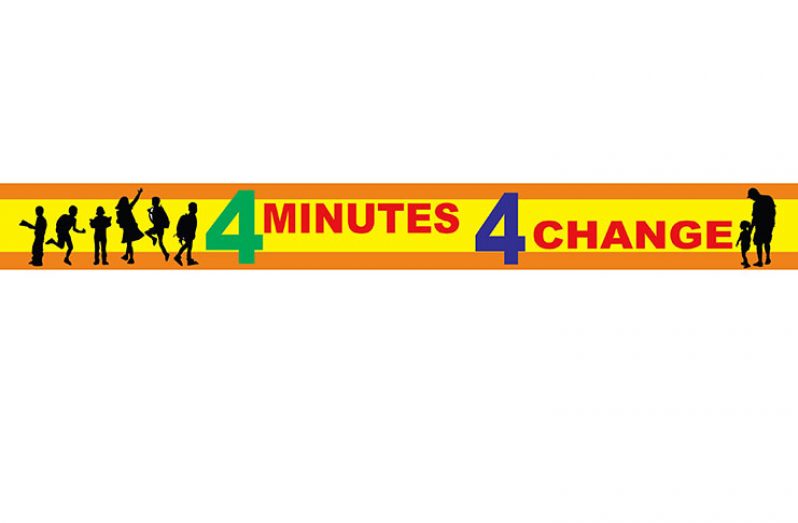GUYANA is so hot that even during the rainy season some people bathe two, sometimes three times per day. Usually, children are happy when they are sent to bathe, so they can cool down their skin. On the other hand, there are some children who will cut corners when it comes to personal hygiene: and if parents do not stay on their trail they will profess to have brushed their teeth and bathed their skin when they have done neither.
Parents might call them nasty and even want to beat them for not taking their personal hygiene seriously or for lying. However, some children fail to see the benefits that are derived from these daily procedures. For them the routines are monotonous and boring and even bothering to apply deodorant can be a massive distraction from what they consider to be ‘more important things’ to be getting on with at any given time.
Some aspects of child development need a little help more than others so it is a good idea for adults to talk to children about personal hygiene while they are young. For instance, when they are bathing parents should teach them to wash their bodies properly; paying attention to under their arms, genital and anal areas. These incubated areas can be breathing grounds for bacteria and should be kept clean. They should dry their bodies thoroughly when done. Underwear must be changed every day and even twice a day after playing sports or physical activity.
When introduced in the right way, these habits will become a natural lifelong practice rather than a tiresome chore. Children need to be taught about germs and how easily they can be spread. A basic thing such as washing hands after using the bathroom is essential. Little boys especially have a tendency to skip this important practice and rush back to whatsoever they were doing beforehand.
Hand washing, preferably always with soap, can ward off illnesses and help children to stay healthy. Because children cannot see the germs, they do not understand the importance of keeping their hands clean. They will only understand the logic behind the action, if an adult takes the time to explain. Hand-washing should take place after using the toilet; playing in the yard, before eating and when children come home from school.
It is surprising how far germs can travel from a sneeze or a cough: children should cover their mouths and wash their hands after coughing or sneezing. Why run the risk of spreading viruses among children when illnesses can be prevented by teaching them a little know-how and by taking some extra care. So often adults say, ‘Cover your mouth’ to a coughing child, but they should explain that it is not only a polite thing to do but also the best way to prevent the spreading of germs.
Maintaining a good level of personal hygiene helps children to build better self-awareness and promotes a positive sense of well-being. Clean hair, clean bodies and clean clothes will help children to feel good about their appearance and boost their confidence.
Children should brush their teeth at least twice a day and especially before going to bed at night and after meals if possible. If a child has persistent bad breath it could be due to a number of reasons including gum infection or infected, inflamed tonsils. Parents must seek professional advice in this case: it is not the fault of the child but could be a matter that needs attention.
Fingernails are the perfect place for harbouring germs in the adventurous world of childhood; they should, therefore, be kept trim and clean. Adults can teach children how to use a nail clipper and nail file and make the exercise a fortnightly/monthly enjoyable routine. Once children are taught these seemingly small practices, they will understand how they influence their overall good health, their deportment and general appearance.
Personal hygiene becomes even more important as children approach adolescence. During adolescence their bodies start to change physically and psychologically. A reasonable standard of hygiene must be maintained in order for them to stave off sickness and infections. High perspiration is common among pre-adolescents and teenagers but it is better to provide a good antiperspirant that will prevent perspiration, rather than a deodorant that only masks the smell.
Adults must do their best not to embarrass children about their body odours or lack of cleanliness during this transitional phase of their lives. Children need to be guided; some more than others. Try to provide all the toiletries that teenagers need to keep fresh and to stay clean along with a level of patience and understanding.
If you are concerned about the welfare of a child call the CPA hotline on 227 0979 or write to us at childcaregy@gmail.com
A MESSAGE FROM THE CHILDCARE AND PROTECTION AGENCY, MINISTRY OF SOCIAL PROTECTION




.png)









